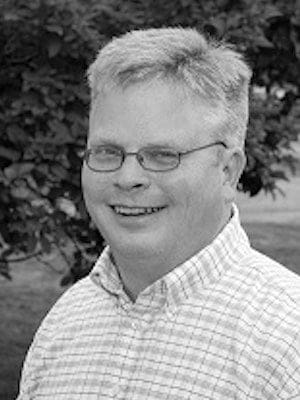I am not sure what it was about hearing that scientists had mapped the genome of a domestic pig that so captured my attention. Perhaps it was all the other stuff that I would have thought needed to be done before we got around to a genetic map of pig DNA. Once again I was not consulted; go figure.
Lawrence Schook is a University of Illinois professor of biomedical science and the leader of the research team that mapped the pig genome. When asked, he said that the biggest surprise that resulted from the project was the similarity in sequence and structure between the pig’s DNA and that of human DNA. As I look at the clutter on my desk, I am thinking that Schook should not be surprised.
The truth of the matter is that I already knew there were similarities between humans and pigs, positive similarities. I had a young man in my first youth group out of seminary who had a heart defect. The surgeons at Duke went in and replaced his bad valve with – you guessed it – a valve that they took from a pig.
At the time, I had never heard of such a thing, but it worked out quite well for that young man. After recovering from his surgery, he led our church youth league basketball team in points, steals and heart. You probably always thought that the best thing that could come from a pig was bacon; now you know that there is more to a pig than you might have thought.
It may seem obvious, but if we share genetic similarities with pigs, how much more similar are we to other human beings. Granted, there are different kinds of people in the world. To be honest, some of those differences are more than I can understand or be comfortable with at times. Yet I have to believe that a father in China wants what I want for my children – good health, meaningful work and a happy life.
Why are there so many religions in the world? I believe that there are so many because we as human beings have a desire inside of us to be connected with something larger than ourselves. A Buddhist in Taiwan, a Muslim in Detroit and a Presbyterian in Knoxville all seek to find meaning that is greater than their day-to-day experience of life.
What holds it all together? What gives meaning to life? Some would suggest that the work of scientists like Schook lessen the need for these kinds of questions – that somehow the answers to life’s most pressing question are to be found by looking at a test tube or through a microscope.
While I marvel at the information and knowledge that continues to emerge from laboratories around the world, I do not feel any less of a need to know God and to be known by God. The pressing questions of life do not reside in a laboratory or a classroom, though there is much good to be learned and discovered in both places.
The questions that each of us must find answers to reside in that thin place between ourselves and the holy. Who am I? Who am I to be in this world? What am I to do? What should my neighbor expect of me? What does God expect of me?
I am pretty sure that pigs don’t ask these sorts of questions and so they miss the joy of discovering meaning and joy in living life. Likewise, when we don’t ask these sorts of questions, we too miss the meaning and joy that God intended to be ours.
Ed Sunday-Winters is senior pastor of Ball Camp Baptist Church in Knoxville, Tenn. He blogs at Just Words.
Pastor of Greensboro United Church of Christ in Greensboro, Vermont. He and his wife, Patti, spend much of their free time keeping up with their vivacious 11-month-old golden retriever, Oakley Rose.

